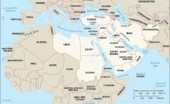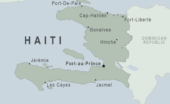Re Ian Bremmer 'Could third-party candidates upend the 2024 US election?' 3 April The current political movement in the USA…
Wednesday Night #1291
Written by Diana Thebaud Nicholson // November 29, 2006 // Herb Bercovitz, John Moore, Reports // Comments Off on Wednesday Night #1291
Politics and the power of the people
Believers and skeptics alike are watching the current Liberal convention in Montreal with great interest. Even those of us who still maintain vivid memories of scandals, ineptitude, arrogance and obviously desperate attempts to maintain power in the face of public anger and disappointment, wait and watch. The drama of the battle between altruism, pride, vanity and personal ambition plays out on the stage of the Montreal Palais de Congrès at a cost of approximately three million dollars, at no immediate cost to us, the audience. We observe candidates with no hope of election as party leader, stubbornly refusing to throw in the towel, planning to use their two or three percent of the vote as trading cards for a political appointment, perhaps a cabinet post in a future government or merely for free exposure to a wide audience.
It took the genius of American good friend and neighbour, Vermonter Howard Dean , to bring the party back to what really counts, namely the individual voter and the potential voter who has not seriously exercised his right to vote in the past. He pointed to the relationship that at times is closer between citizens than politicians of our two countries, and the importance to politicians to listen to what the electorate is saying.
Perhaps, the unfortunate truth in politics, remains the principal ethical challenge for our elected politicians to maintain the balance between personal recognition and ambition and representing the will of the electors.
[Editor’s note: We were privileged the day after this Wednesday Night, to be at a luncheon where the keynote speaker. reiterated Governor Dean‘s message and we were reminded of the tribute to Pierre Trudeau published in the Globe & Mail on the latter’s death. “What is seldom remarked upon, however, is that the foundation of his philosophy was a belief that leaders draw their authority not from office, but as a gift from the people. Mr. Trudeau, above all, believed in democracy. He valued the wisdom of the public and thought that reason would eventually prevail. In 1980, for example, having just been returned to office, a poll showed that the separatists were leading for the coming referendum. The Cabinet Office was duly alarmed and aides and advisers rushed in, full of foreboding. One man, however, was calm amid the turmoil. “I know Quebeckers,” the Prime Minister said. “They will never vote to leave Canada.” Confidence in the judgment of the people was the starting point to Mr. Trudeau’s approach to politics….]
Kenya – assimilation or civil war?
Assimilation of marginal cultures within national borders can prove difficult, even with the best of intentions. Northwest Kenya borders on Somalia and the nomadic Kenyans of that area resemble Somalis more than they do other Kenyans. Following Kenyan independence, three years of strife in the Northwest Frontier ended in agreement to maintain the area within Kenya and the Nairobi government made great efforts to fill the needs of the nomads while respecting their culture; however, given their constant mobility, it has proven difficult to supply these communities with any form of infrastructure. As time went on, the relationship between that area and the rest of the country has deteriorated, complicated by links to Muslim terrorist groups, and possibly leading to a future civil war. Would it have been better to have favoured integration over diversity? What is the message for Afghanistan, Iraq, or even, dare we say, Canada? Is the Kenyan experience an anomaly or is it a foreshadowing of things to come?
In the Netherlands, as in the U.K., citizens are not assimilated, but it works. The world has jumped into Afghanistan and Iraq without a clear plan, but has been very reluctant to move in Darfur and Rwanda. There must be a solution somehow.
In Afghanistan, the Taliban appear to be prevailing despite the best efforts of NATO to protect the population from their influence. At stake is opium poppy production, the only viable crop in that country, sold by growers for very little money and resold for sufficient money to make terror a worthwhile enterprise in that country. A proposed solution would see the entire crop bought at higher prices for the legitimate world production of narcotics, a solution that might dampen the warlords’ penchant for intimidation and violence while helping to sustain the local population. Serious money, wisely spent might have the potential for working in the long run, despite the fact that historically, it has not.
To date, the strategy of integration has not been working in Iraq. We tend to view the world from our experience in Montreal, where there exists an atmosphere of tolerance and respect among citizens of diverse origins and beliefs. In Iraq, the level of hatred between Kurds, Sunni and Shiites, appears to be irreconcilable. The bold experiment does not appear to be working. A proposed solution, namely the splitting into three autonomous states appears to be impractical at this point, with Shiites aligning themselves with Iran and the Kurdish population of Turkey undoubtedly wishing to join a newly created Kurdish state. A resurrected Saddam has even been suggested as the only realistic, although unpalatable solution to the disastrous situation in Iraq.
New concepts in emergency response
With advances in medicine and trauma surgery, emergency response teams in Canada have become increasingly effective, with increasing availability of defibrillators at the site of a heart attack victim and the “scoop and run” policy of rapidly transporting the trauma victim to the closest hospital emergency room rather than attempting to treat him at the scene. It is believed by some, that that policy, had it been implemented in Paris at the time, might very well have saved Princess Diana’s life.
The Prologue
So now we are a nation – but who is we and what is a nation? Oh joy, Stephen Harper‘s motion to recognize Quebecers as a nation within a united Canada, which passed in a landslide, has no legal authority, but the Bloc has already said it will use it to demand extra powers for Quebec, including the right to speak at international meetings. Reuters has noticed us and so have the BBC and CNN ; the New York Times took up the story earlier declaring “Canadian Prime Minister Is Ready to Loosen Federal Ties to Quebec”. Meanwhile, sometime Wednesday Nighter John Moore asks in The National Post “If the Québecois are a nation, who am I”
As mentioned last week, the planets have aligned more often than not to favour the outbreak of highly newsworthy events on Wednesday Night. Sad to say, for all our Canadian political junkies, there will be no vote at the Liberal Convention this Wednesday Night. There will, however, be the keynote address by Howard Dean at approximately 8:20. You can enjoy this address in the comfort of 33 Rosemount, with drink in hand and off-button at the ready – or not – and instant reply, not to mention punditry both on and off-screen.
You may also be happy to know that the Paul Martin tribute will not take place until Thursday.
Two Wednesday Nighters in particular are highly visible in Convention news. On Monday, the Liberal Party Renewal Commission released the report of the Environment and Sustainable Development Taskforce , chaired by Désirée McGraw. In case there were any doubts, it does not sound like anything heard from either Stephen Harper or Rona Ambrose
Donald Johnston’s endorsement has made news on the Rae campaign pages
And let us not forget that we have good representation amongst workers and delegates – from whom we hope to have full reports once they have recovered from their exhaustion.
Should you believe that the entire world has stopped in wonderment over this week’s events at Montreal’s Palais des Congrès, we remind you that Pope Benedict XVI begins a visit to Turkey on Tuesday see aljazeera.net
First conceived as an exercise in intra-Christian diplomacy: a visit to the Patriarch Bartholomew I, the most senior bishop of the worldwide Orthodox church, who resides in Istanbul, the visit has provoked lots of criticism, demonstrations and, it is said, the sudden escape of numerous Turkish politicians on urgent business elsewhere.
There are election results in other parts of the world that bear watching. In Ecuador, the leftist candidate and Hugo Chavez ally, Rafael Correa, has declared himself the winner of the presidential run-off election. Meanwhile in Venezuela, elections are on December 3 and one Venezuelan friend tells us that it’s a bitter campaign in which no matter who wins, wins, the other will claim fraud. In the Democratic Republic of Congo (where Wednesday Nighter Harriet Solloway serves with the UN), the election of 35 year-old Joseph Kabila as President has now been confirmed.
After last week [Wed1290]‘s discussion regarding carbon-neutral living, we are delighted to refer you to the piece in The Economist on the movement towards including “avoided deforestation” in a list of emissions-reducing activities that rich countries can sponsor to help meet obligations under the Kyoto Protocol which provides that nations either reduce their own output of greenhouse gases, or pay for equivalent reductions in more benighted places. Please see A ransom worth paying
On another topic from last Wednesday, the National Post carried a story by Sean Silcoff (another Wednesday Nighter) on Flexjet, the little-known fractional ownership program with a fleet of 85 aircraft that is run by Bombardier Aircraft Services and has operated at a loss. It is about to declare its first profits, much to everyone’s surprise.
One final item on a frequent Wednesday Night topic: Medical specialists scorn Quebec wage offer “Health Minister Philippe Couillard’s latest offer of $430 million in wage hikes is not enough to remove the salary gap Quebec’s 8,000 specialists face, a gap the previous provincial government had promised to close, federation president Gaétan Barrette said Monday.”
And lest we become complacent about matters in the Middle East ” Jordan’s King Abdullah, who will host President Bush this week during emergency talks on Iraq , said yesterday that the Middle East faces the prospect of three simultaneous civil wars erupting.



